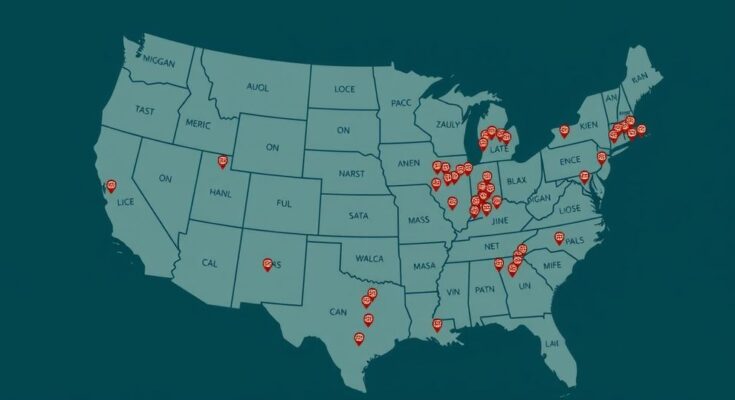The Biden administration has chosen not to extend a humanitarian parole program for migrants from Venezuela, Haiti, Cuba, and Nicaragua. This decision affects numerous individuals living in South Florida, as they must now seek alternative legal status or face deportation, just ahead of the 2024 presidential election.
The Biden administration has announced that it will not extend a temporary humanitarian program that permitted migrants from Venezuela, Haiti, Cuba, and Nicaragua to enter the United States with sponsorship. This two-year program, implemented to provide a lawful alternative for those frequently attempting illegal crossings, has significant ramifications for South Florida, which houses the largest communities of these migrants. Those currently benefitting from the program must now either secure a different legal status or prepare for potential deportation, positioning the administration’s immigration policies into the spotlight as the 2024 presidential election approaches.
The humanitarian parole program commenced in 2022 as a response to the increasing number of migrants attempting to cross the U.S.-Mexico border. Initially focused on Venezuelans, it was later expanded to include Cubans, Haitians, and Nicaraguans, enabling them to stay and work in the United States while they pursued additional immigration benefits. Given the current political climate and heightened focus on immigration, this decision reflects the administration’s evolving stance on migration policy as it faces scrutiny from political opponents.
In summary, the Biden administration’s decision not to extend the two-year humanitarian program for Venezuelan, Haitian, Cuban, and Nicaraguan migrants marks a pivotal moment in the current immigration landscape. As many individuals face the prospect of needing to obtain different legal status or facing removal, this shift signifies an intensifying debate on immigration policy ahead of the upcoming presidential election.
Original Source: www.wlrn.org




